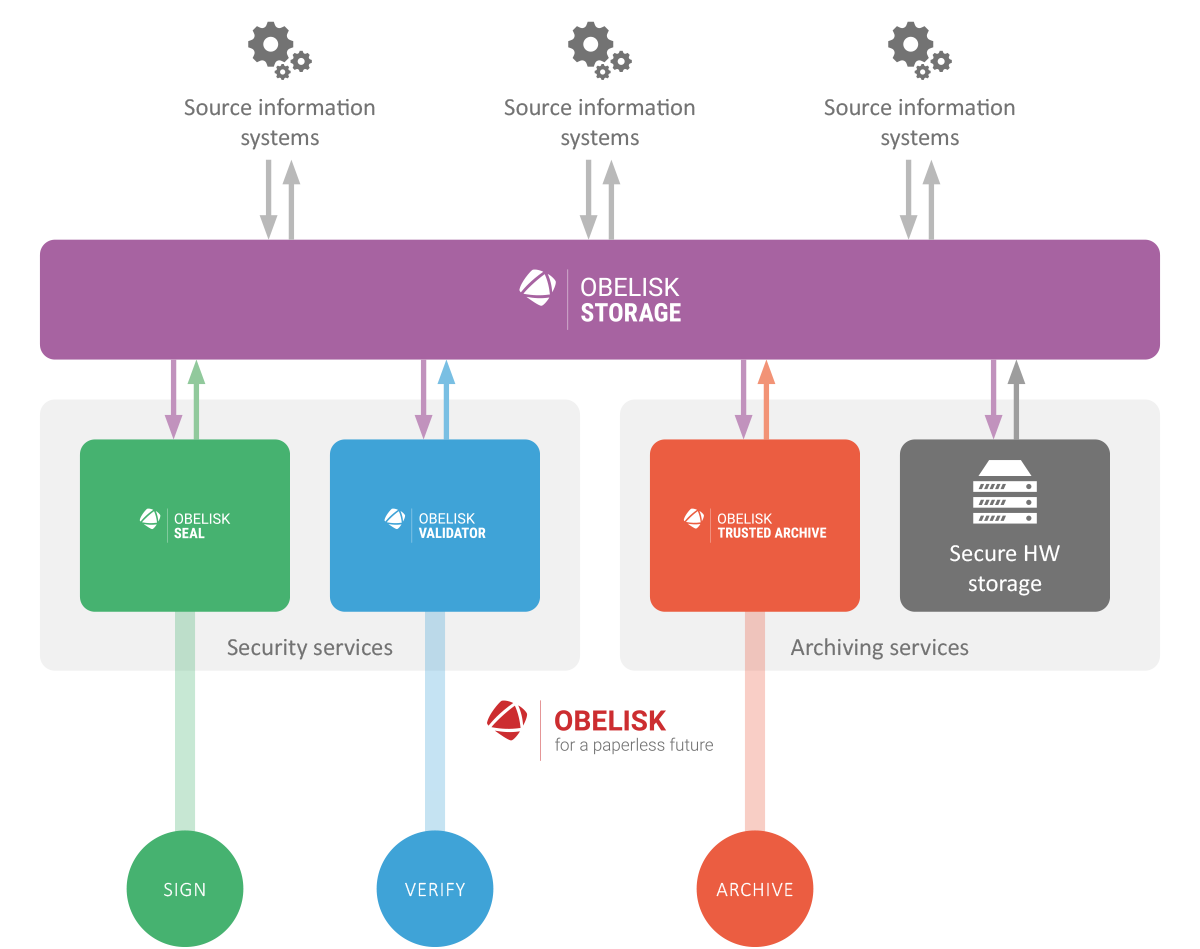OBELISK Storage roles
Trust services centralization
Makes electronic documents available to other information systems
Process monitoring and management
Data storage consolidation
Basic functions
OBELISK Storage provides source services with basic document services and operations through a single application programming interface. Service orchestration takes place at the composite end-point level. Individual services can be combined regardless of whether they are synchronous or asynchronous.
- Download a document
- Save a document
- Scale documents between repositories
- Document distribution to other systems
Notification of new document creation to other systems
Convert a document to another format
Media files streaming
Encrypt a document
Electronic signatures validation
Document electronic signing
Document electronic sealing
Document archiving
Integration
OBELISK Storage offers a clear and efficient interconnection of information systems based on the transmission of messages and requests.

Main benefits
Separation of information systems from physical storages
Automated document distribution within the company
Possibility of online migration from one repository to a new one without downtime
Storage scalability from cheap to specialized by the document types
High availability support with switching between data centres
Ensuring that documents are saved even if the destination repositories are unavailable
Input APIs
Product SOAP based web services
SAP Content Server protocol
S3 protocol
Supported storages
By default, OBELISK Storage stores documents in an internal database, but thanks to several storage connectors, it also allows storage in external storage.
Filesystem storage
DELL EMC Centera
DELL EMC Elastic cloud
Hitachi Content Platform
IBM Information Archive
